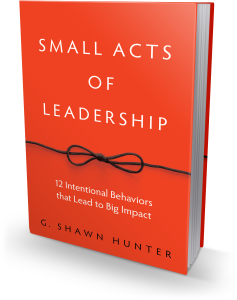Why the Best Leaders Reward Defiance
In 1959 the Revolutionaries finally forced the Cuban president, and United States ally, Fulgencio Batista into exile. Fidel Castro and his insurgency had taken over. Two years later, John F. Kennedy, the golden boy in the White House, initiated the Bay of Pigs invasion. Surrounded by advisors and cabinet members who believed Kennedy could not possibly make a mistake, Kennedy heard not one objection before launching the failed invasion.
The ill-conceived, poorly-executed, and completely bungled operation to invade Cuba and take over lasted only 6 days, and was an international embarrassment to the United States.
From 1996 through 2001 Enron had been named by Fortune Magazine as “The Most Innovative Company in the World.” Innovative indeed. In 2001, Enron CEO Jeff Skilling, former CEO Ken Lay, along with top executives, cooked the books by underreporting debt, and inflating profits. They are in prison now.
Enron had been consistently ranked near the top in quality of management, talent, and innovative products and services. According to one top executive, “We got to the point where we thought we were bullet proof.”
As Carol Dweck describes in her book Mindset, when advisors to the former CEO of General Motors, Alfred P. Sloan, were in unanimous agreement over a decision, he would say to them, “I propose we postpone further discussion of this matter until our next meeting to give ourselves time to develop disagreement…”
Irving Janis, of Yale University, coined the term “Groupthink” and published a book under the same name in 1972. In his research groupthink most easily occurs when three circumstances are present:
- A strong, persuasive group leader
- A high level of group cohesion
- Strong external pressure to make a good decision
Here is a small, yet simple, practice to avoid groupthink, and to spur ingenuity and innovation.
Reward Creative Defiance
David Packard, cofounder of Hewlett-Packard, had a favorite story of a junior engineer who was asked to abandon work on a new type of monitor he was working on. Instead of dropping the project, the young engineer instead took the monitor to show to customers, and developed an enthusiastic support base for his innovative idea, which convinced the company to proceed developing the product. The company made over thirty-five million dollars on sales of that monitor, and the engineer was awarded a medal “for extraordinary contempt and defiance beyond the normal call of engineering duty.”
One more example…
In the early 1990s, Howard Behar, former President of Starbucks, was then acting as vice president of sales and operations to help expand Starbuck’s store locations. Dini, one of his store managers in Santa Monica, showed Howard a new drink their store invented. Howard agreed the drink was excellent, but the management team back in Seattle was hesitant to adopt it, and asked Dana to stop making it.
Howard called her up, and privately told her to keep making it and monitor sales. That was the birth of Starbucks’ Frappuchino®, which turned out to be one of their most popular—and profitable—drinks.
Creativity, and innovation often occur more rapidly when people are encouraged – rewarded even – by their acts of constructive defiance.
Go. Try something new. Take a risk. What would you do if you were not afraid?
To learn about how questions can drive Innovation and Transform Mindsets see:
- Steve Shapiro on Out-Innovate the Competition
- Marilee Adams on Question Thinking: The Key to Transforming Mindsets
- ____________________________________________________
- You might enjoy this related article
- Join my Email updates for more realistic optimism
- Learn more about my Speaking work

Twitter: @gshunter
Say hello: email@gshunter.com
Web: www.shawnhunter.com



